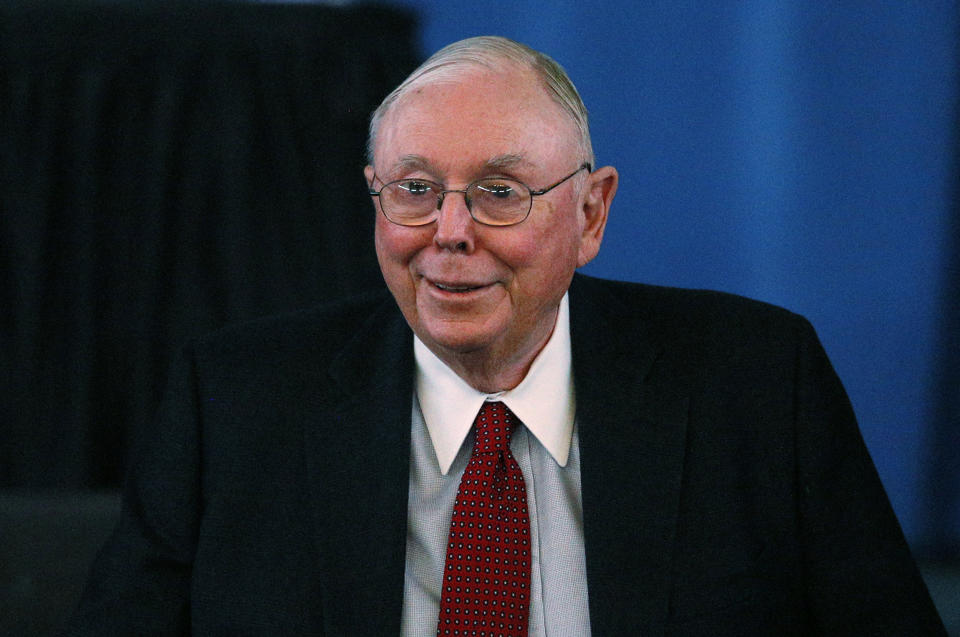Charlie Munger questions if stock buybacks at present levels are smart

Charlie Munger, the vice chairman of Berkshire Hathaway (BRK-A, BRK-B) and Warren Buffett’s right-hand man, spoke on Thursday from the Daily Journal’s (DJCO) annual meeting in Los Angeles about a range of topics including the controversial matter of stock buybacks and presidential candidates proposing tight restrictions.
"Generally speaking, I'm restrained in my enthusiasm for politicians telling corporations what they should do,” Munger said in response to a question about buybacks from Yahoo Finance.
"But, I will say this — when it was a very good idea for companies to buy back their stock, they didn't do very much. And the stocks got so high priced it's created a bad idea. They're doing it a lot. Welcome to adult life. This is the way it is," Munger said. "But, it's questionable at present levels whether a lot of it is smart."
During his reply, he singled out hedge fund manager Eddie Lampert and Sears (SHLDQ).
"Is Eddie Lampert smart to buy back so much Sears Roebuck? No. And a lot of those that allowed that kind of mistake that's been made."
Buybacks have come into focus after Senate Minority Leader Chuck Schumer (D-NY) and Senator Bernie Sanders (I-VT) introduced legislation this month that aims to prevent company stock buybacks unless the firms put employees first, including a $15 minimum wage, seven days of paid sick time off, and health and pension benefits.
In an op-ed published last week, the pair slammed the $1 trillion worth of stock buybacks in 2018 as a "practice of corporate self-indulgence." The reason it's problematic, they argue, is that buybacks don't benefit most Americans because a small percentage of people own a majority of the stocks. What's more, many executives receive stock-based compensation and would benefit from share repurchases. They also argue that buybacks limit a company's ability to invest in wages, R&D, training, and other benefits.
At the 2018 Berkshire Hathaway Annual Meeting, Munger said some companies use share repurchases to keep the stock price up, which he called "insane" and "immoral."
In Berkshire Hathaway's 2016 annual letter, Buffett wrote that discussions around buybacks have "often become heated." He made a case that buybacks only make sense for long-term shareholders if "the shares are bought at a price below intrinsic value.”
"As the subject of repurchases has come to a boil, some people have come close to calling them un-American — characterizing them as corporate misdeeds that divert funds needed for productive endeavors. That simply isn’t the case: Both American corporations and private investors are today awash in funds looking to be sensibly deployed. I’m not aware of any enticing project that in recent years has died for lack of capital," Buffett wrote at the time.
Buffett also wrote that there are two instances when buybacks shouldn't take place. First, if the company needs capital for long-term investments in its business and doesn't want to add more debt. And second, if the company needs the money for an acquisition or another investment opportunity that would offer "far greater value than do the undervalued shares of the potential repurchaser."
Julia La Roche is a finance reporter at Yahoo Finance. Follow her on Twitter.
